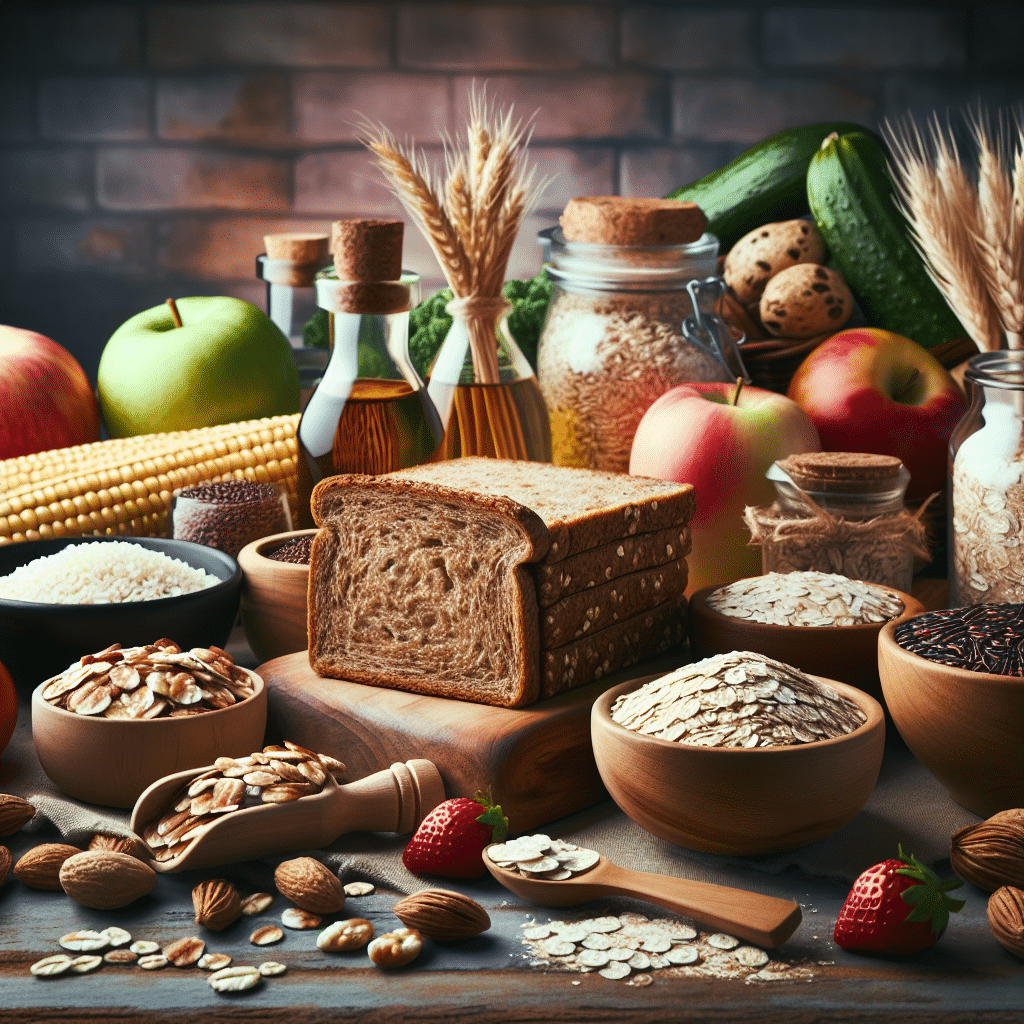Whole Grain Foods: Wholesome Clean Eating Staples
-
Table of Contents
- Whole Grain Foods: Your Guide to Wholesome Clean Eating
- Understanding Whole Grains
- The Health Benefits of Whole Grains
- Whole Grains vs. Refined Grains
- Examples of Whole Grain Foods
- Incorporating Whole Grains into Your Diet
- Case Studies and Statistics
- Challenges and Considerations
- Conclusion: Embrace the Wholesomeness of Whole Grains
- Discover the Benefits of ETprotein’s Plant-Based Protein Products
Whole Grain Foods: Your Guide to Wholesome Clean Eating

Whole grain foods have become synonymous with clean eating and a wholesome lifestyle. These nutrient-dense staples are not just a fad but a fundamental aspect of a balanced diet. In this article, we delve into the world of whole grains, exploring their benefits, varieties, and how they contribute to a healthier you.
Understanding Whole Grains
Whole grains are the seeds of grass-like plants called cereals. Unlike refined grains, which have been processed to remove the bran and germ, whole grains include all three parts of the kernel: the bran, germ, and endosperm. This means they retain all their nutrients, including fiber, vitamins, minerals, and phytochemicals.
The Health Benefits of Whole Grains
Consuming whole grains as part of a healthy diet can lead to numerous health benefits. Here are some of the most significant:
- Reduced Risk of Chronic Diseases: Studies have shown that whole grains can lower the risk of heart disease, stroke, obesity, and type 2 diabetes.
- Weight Management: The fiber content in whole grains helps in feeling full longer, which can prevent overeating and assist in weight management.
- Digestive Health: The fiber in whole grains helps maintain bowel health and regularity, reducing the risk of constipation and diverticular disease.
Whole Grains vs. Refined Grains
Refined grains have been milled to remove the bran and germ, giving them a finer texture and extending their shelf life. However, this process also strips away essential nutrients. Whole grains, on the other hand, provide more fiber, protein, and other nutrients that are lost during refining.
Examples of Whole Grain Foods
There is a wide variety of whole grain foods available, each with its unique taste and nutritional profile. Some popular examples include:
- Whole wheat
- Brown rice
- Oats
- Barley
- Quinoa
- Millet
- Buckwheat
- Bulgur
Incorporating Whole Grains into Your Diet
Adding whole grains to your diet can be simple and delicious. Here are some tips:
- Start your day with a bowl of oatmeal or whole-grain cereal.
- Replace white rice with brown rice or quinoa.
- Use whole wheat flour for baking.
- Snack on popcorn, a whole grain, instead of chips.
- Choose whole grain bread for sandwiches.
Case Studies and Statistics
Research has consistently supported the benefits of whole grains. For instance, a study published in the American Journal of Clinical Nutrition found that higher whole grain intake was associated with a lower risk of cardiovascular disease. According to the Whole Grains Council, people who eat whole grains as part of a healthy diet have a 25-28% lower risk of heart disease than those who don’t.
Challenges and Considerations
Despite their benefits, some individuals may find it challenging to incorporate whole grains into their diets due to dietary restrictions, such as gluten intolerance or celiac disease. Fortunately, there are gluten-free whole grains like quinoa and buckwheat that can be excellent alternatives.
Conclusion: Embrace the Wholesomeness of Whole Grains
Whole grains are more than just a health trend; they are a cornerstone of clean eating. By incorporating a variety of whole grains into your diet, you can enjoy their numerous health benefits, contribute to a sustainable food system, and indulge in their rich flavors and textures. Make whole grains a staple in your pantry and experience the transformation in your well-being.
Discover the Benefits of ETprotein’s Plant-Based Protein Products
For those looking to complement their whole grain intake with high-quality protein, ETprotein offers a range of plant-based protein products. Their organic and non-GMO protein powders, including rice, pea, and seed proteins, are perfect for enhancing your meals and supporting your clean eating journey.
About ETprotein:
ETprotein, a reputable plant protein vegan protein Chinese factory manufacturer and supplier, is renowned for producing, stocking, exporting, and delivering the highest quality organic bulk vegan protein and plant proteins. They include Organic rice protein, clear rice protein, pea protein, clear pea protein, watermelon seed protein, pumpkin seed protein, sunflower seed protein, mung bean protein, peanut protein etc. Their offerings, characterized by a neutral taste, non-GMO, allergen-free attributes, cater to a diverse range of industries. They serve nutraceutical, pharmaceutical, cosmeceutical, veterinary, as well as food and beverage finished product distributors, traders, and manufacturers across Europe, USA, Canada, Australia, Thailand, Japan, Korea, Brazil, and Chile, among others.
ETprotein specialization includes exporting and delivering tailor-made protein powder and finished nutritional supplements. Their extensive product range covers sectors like Food and Beverage, Sports Nutrition, Weight Management, Dietary Supplements, Health and Wellness Products, and Infant Formula, ensuring comprehensive solutions to meet all your protein needs.
As a trusted company by leading global food and beverage brands and Fortune 500 companies, ETprotein reinforces China’s reputation in the global arena. For more information or to sample their products, please contact them and email sales(at)ETprotein.com today.












